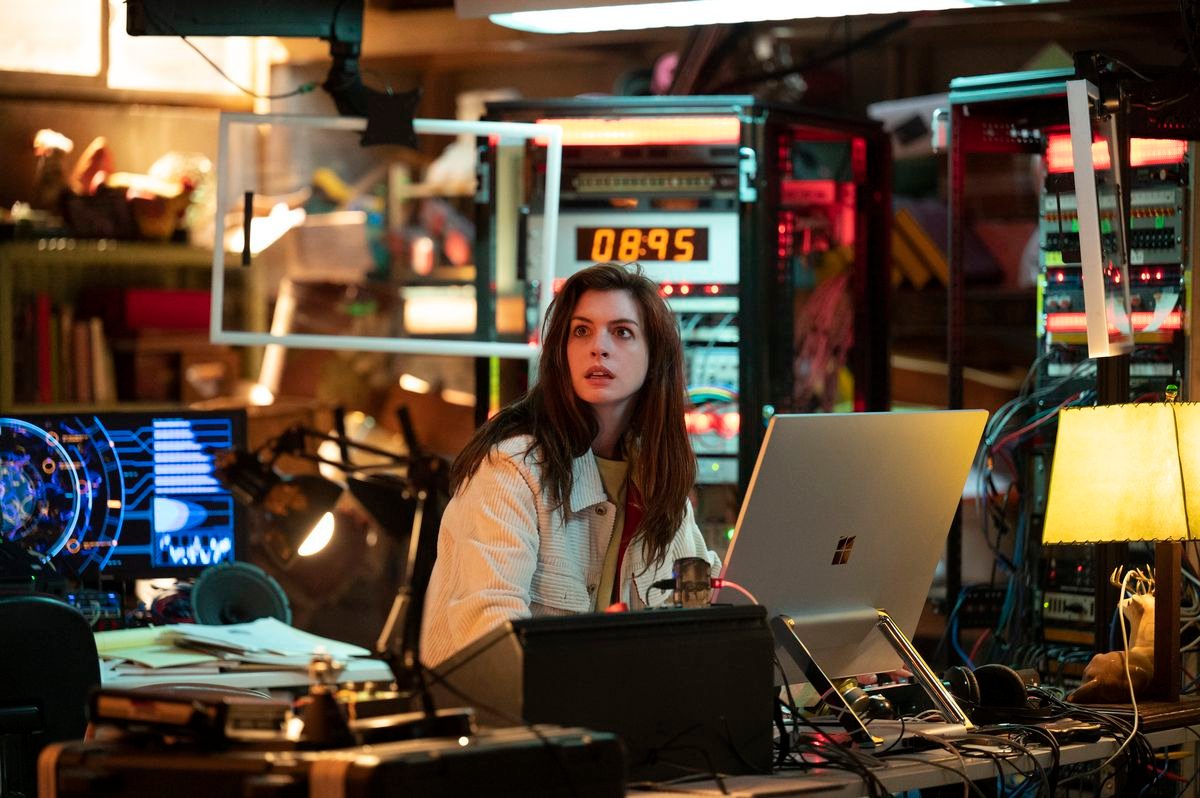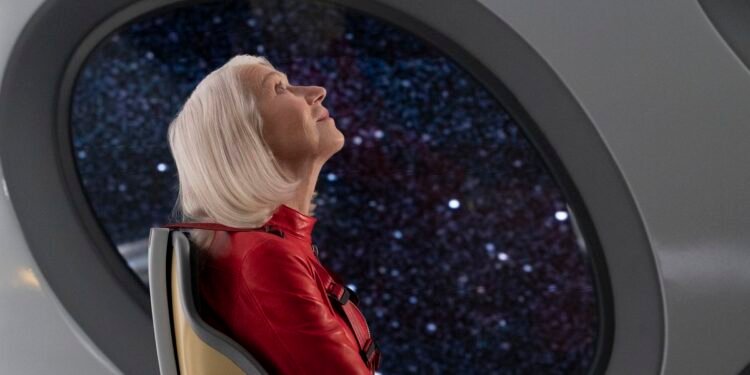The strength of a monologue often depends on the strengths of the performer. How singular is their presence? How much do they dig into the text? How well do they build an interior world for their character, and an exterior world to contextualize their actions? Whether because of simplistic writing or insufficient execution, monologues can easily fall into self-indulgence, and that combination plagues Amazon Studios’ inconsistent science fiction anthology series Solos.
The seven initial Solos episodes, which run from 21 to 32 minutes and each center on a single performer, are vaguely concerned about big tech. But the show’s future-anxieties are overshadowed by the discrepancies between the potency of its actors, and the way it offers more product placement than genuine human emotion. An extended bit about the cellphone tagline “Can you hear me now?”, numerous positive shout-outs to Carvel cake, an apropos-of-nothing namedrop of Alfa Romeo cars… For all the advancements Solos uses as narrative devices — time travel, genetic testing, robot clones, space exploration, memory transfer — it can’t let go of using commercialism as a crutch for various character arcs. At the same time, it fails to deliver any kind of commentary on what that late-stage capitalism has done to us, individually or collectively. These references to taglines and corporations stick out in each monologue, a jarring indication of how blandly Solos tries to envision our future selves. Solos is punctuated by a lack of imagination — a critical flaw in a science fiction story. The series rarely feels like it’s saying much of anything.
David Weil, who previously wrote for Amazon Studios’ show Hunters, is responsible for most of these issues, as the creator of the anthology, the director of three installments, and the writer of four. Also involved are directors Zach Braff, Tiffany Johnson, and Sam Taylor-Johnson, and writers Tori Sampson, Bekka Bowling, and Stacy Osei-Kuffour (also of Watchmen, Hunters, and the upcoming Blade reboot starring Mahershala Ali). Each Solos installment is named after the individual who’s monologuing. Each one incorporates or alludes to some example of big tech that’s complicating people’s lives. And each one is either buoyed or dragged down by its central performer.

Photo: Amazon Studios
First up is Anne Hathaway as Leah, a 34-year-old woman trying to solve time travel while living in her mother’s cluttered basement. Surrounded by monitors and hundreds of light bulbs, Leah has spent five years and made 10,000 attempts trying to communicate with her future self — until she makes contact with both her future and her past. Next is Anthony Mackie playing dual roles in “Tom,” as a man dying of cancer and the robot version of himself he’s paid to continue living with his family once he’s gone. Then there’s Helen Mirren as the 71-year-old Peg, looking back on her life of fear and anxiety as she floats in a spaceship on a no-return mission.
Solos skips over into horror with Uzo Aduba in “Sasha,” as a woman who moved into a smart home after an international pandemic, and still refuses to leave 20 years later. The series returns to that genre in “Nera,” starring Nicole Beharie as a woman whose son seems affected by the cutting-edge fertility treatments she used to become pregnant. In between those two is Constance Wu as a hard-partying woman stuck in a waiting room in “Jenny.” Then Solos concludes with “Stuart,” in which Morgan Freeman plays a dementia-suffering man tracked down by Dan Stevens’ Otto, who’s looking for revenge against Stuart for the role he played in a family tragedy.
It should be a relief that each episode is half an hour or less, but even so, some of them languish to the point of feeling tedious. The truth is that some of these actors can handle the responsibility of manufacturing a narrative all by themselves. Hathaway does, despite the bizarre reliance of Weil’s script on the Verizon/Sprint feud and on present-day pop-culture allusions, like Game of Thrones. Although the CGI effects of “Peg” feel a bit cheap, Mirren builds a bittersweet, heartfelt character in her segment, while Aduba and Beharie are enthralling in “Sasha” and “Nera,” respectively. Others, like Mackie and Wu, fall short. “Tom” particularly suffers from how quickly Weil’s script moves Tom from hating his robot twin to telling it intimate, soul-baring truths about himself. Mackie can’t sell the rapidity of that transition. (Did Weil lift a joke here about Tom’s wife’s flatulence from Good Will Hunting?)
Worst of all might be “Jenny,” which is an absolute slog not just because the character is so loathsome and Wu’s performance so irritatingly navel-gazing, but because the entire purpose of the segment is to introduce a technological concept that is picked up by “Stuart.” Solos describes itself as a series that “explores the strange, beautiful, heart-breaking, hilarious, wondrous truths of what it means to be human,” but “Jenny” in particular doesn’t live up to that description once you realize that its last-minute reveal could have just been a line of dialogue in a more tightly written installment. And although “Stuart” attempts to link all the stories together, the way it goes about that ultimately cheapens much of what we’ve just watched.
The best way to experience Solos would be to single out “Sasha” and “Nera.” Aduba and Beharie give the best performances here. The former goes truly Shakespearean in her fiery wrath against the smart-home company she believes is deceiving her, while the latter communicates an uneasy mixture of fear and protectiveness toward her mysterious son. Their segments are also sharpest about considering our symbiotic relationship with technology. What are the perils of giving so much of our security over to artificial intelligence? What changes about our bodies and ourselves when our biological processes are “enhanced”?
Both segments are also well-directed. Weil keeps his camera on Aduba’s quicksilver-like changes in expression during “Sasha,” allowing us to understand her waves of anger and resignation. Johnson uses negative space smartly in “Nera,” giving the snowy, isolated cabin where the pregnant Nera is living the foreboding atmosphere of a haunted house. Solos is strongest when it devotes itself to the idea of devious tech, and when it centers on the actors best suited to the demands of proactive performance. But “Sasha” and “Nera” are a rarity in an anthology that is otherwise mostly familiar, and disappointingly predictable.
Season 1 of Solos is now streaming on Amazon Prime Video.

















































